Under the veil of otherworldly sonics: a follow-up interview with [‘ramp] aka Stephen Parsick Date: April 2024 |
||
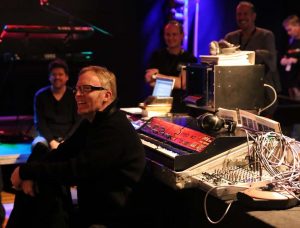 Stephen, how did “No Sleep ‘til Wilmersdorf” (which you call your personal “Pet Sounds”) happen? As is often the case with most of my music, the story behind this album revealed itself to me while creating music rather than having the idea of telling a specific story that is then set to music. In 2014, after relocating to new premises, I started recording again and ended up with some Mellotron improvisations whose evocative mood immediately took me back to some childhood memories – suddenly, I found myself delving into souvenirs from 1978 and 1979 when I had spent some time in West-Berlin with my parents. “compact phasing a”, for example, conjured up that memory of me sitting in our living room, early in the morning of my 6th birthday, with the rising sun shining through the roller blinds while I was unpacking my birthday gifts. Just after that, my parents told me to hurry up and get my stuff together, we were going to Berlin! This set off a whole train of thoughts, and I remembered the ride to Marienborn where we crossed the border and drove along the bumpy GDR motorway. It had been a very hot day, and while we were waiting to pass the border controls, the fan in our car gave out (it was a FIAT, after all… Faulty In All Technology), which made the heat extremely hard to bear – the chocolates my grandma had given me for my birthday were melting in the glove compartment. When we finally arrived in Berlin-Wilmersdorf, I was gobsmacked as I had known this city only from pictures and stories. Funnily enough, Mario Schönwälder instantly identified the place pictured on the album sleeve – with his parents, he had lived just around the corner until 1967 or thereabouts. Technically, I tend to say “wilmersdorf” is probably the most advanced album in [‘ramp]’s catalogue, with “synchronize or die” being a close second, and it indeed features my favourite pet sounds from my favourite instruments. Emotionally, to me it meant things going full circle and returning to where I had departed from in 1997, with my own “Traces” album. Some four years after “Wilmersdorf”, the album “Happy days are here to stay” saw the light of day. It’s very much on the cathartic mourning process you went through after the passing of multi-instrumentalist Klaus Hoffmann-Hoock …. As with “wilmersdorf”, the path the album was going to take revealed itself while recording. In the summer of 2017, after the recording sessions for “wilmersdorf” had essentially come to an end, the first track I recorded was “fomalhaut”.
Right after the terrible Ukraine war started on February 22, 2022, the name-your-price track ”The Day The World Ended” appeared on your BandCamp site… The situation reminds me of my childhood in the early to mid-1980s: Being threatened by impending annihilation through nuclear weapons all the time was a perfectly normal thing then. This is what inspired “doombient” and, frankly, I was glad that this feeling had waned a bit over the past 20 or 25 years. Now it is returning with a vengeance… not totally welcome, were it up to me. As for myself, I feel a bit weary because a long time ago I had predicted something like that would happen – just looking at that guy with dead eyes would have revealed he would eat a razor blade with a grin and ask for more. The world was naïve or greedy or simply arrogant enough to feel appeased and believe such a thing would never happen albeit history had already proved differently.
Over the years, I have met quite a few lovely people from Russia – and Ukraine in particular – through my work. I have been working with a young woman and her sister for six years, teaching German and English. She had actually planned to travel to Odessa around that time in February 2022 because a friend of hers wanted to celebrate the christening of her baby on that day. Her parents used to live south of Zaporizhzhia, and her sister used to live and work in that very city. This suddenly gives a face to a country, the situation is no longer anonymous, and, in some strange way, it becomes a personal affair – even to someone like me who tends to indulge himself in grumpy indifference and biting sarcasm most of the time… After “Happy days are here to stay” you came up with a follow-up, “Arp-en-Ciel”. Is there any story behind that one? Not really. These days, I hardly ever make up any plans of what clever thing Before I even realized it, I found myself deeply immersed in that mood of 1988 when I consciously discovered Schulze’s music, obtained my first synthesizer, and being 16 years old and in love with a girl from Switzerland that I had met while on holiday… some fairly intense emotional and hormonal brew, I must admit. I took the sequencer bits and added some Schulze-style soloing on top, with the same type of instrumentation he would have used in around 1975/76, just to find out whether I would still be able to come up with something like that. It was great to return to the simplicity of my earliest music, without trying to be overly smart or whatever, and this is what I ended up with. Sadly, Klaus Schulze passed away around the time when “ultima ratio” was to be released and the still-untitled “arp-en-ciel” album was about to be finished. Bernhard and I grudgingly carried on because we had already come too far, no matter whether it would look like cashing in on Schulze’s passing or not. I decided to release “happy days” first in order to avoid the impression of jumping on Schulze’s bandwagon for my own purposes. Two musicians with whom you collaborated, Klaus Hoffmann-Hoock and Mark Shreeve, both have passed away. What influence did they have on you, what’s their legacy to you? I had known Klaus for many years, and when I first met him in 1989, I instantly knew this lanky bloke was going to play a vital role in my life. And he did. He not only became one of the guiding masters in my own musical evolution and some kind of father figure to me, he also left an indelible mark on me in terms of who I am today. Klaus was the first grown-up I ever met that I could really take seriously, and he easily was one of the smartest, wittiest, and most laid-back chaps I have ever known. He also inspired me in many ways, positively and negatively, and I learned a lot from him, positively as well as negatively. 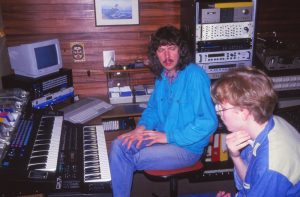 Something that will be with me for the rest of my life is, of course, the Mellotron and my love-hate relationship with this instrument. The same goes for Mark. He was just extremely committed to his musical work because it meant such a lot to him – and this showed in how he approached making music. In that respect, we were kindred spirits. 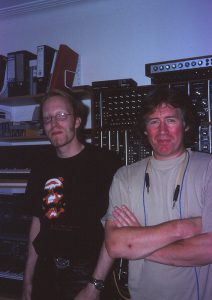 Of course, his way of arranging and composing sequencer-based music has left its mark on me (no pun intended), and I consider much of his work with Redshift as a yardstick for my own work. But he and his lovely wife Sue did something that went far beyond merely making music: They both inspired and encouraged me to speak English again. Before that, I had abandoned speaking English almost entirely in the course of my studies, being hopelessly frustrated with it. This paved the way for my own professional career, and I am not sure Mark was even aware of that. The passing of Klaus and Mark must have diminished the small circle of musicians with whom you feel/felt connected quite a bit. Markus Reuter comes to mind, so who else is left? Markus Reuter and Bernhard Wöstheinrich are, in fact, some of the few people I am still in touch with after almost 25 years, even though they both are busy with their own musical enterprises and individual lives. Still, there is a lot of mutual respect which I think is the best basis for collaboration. Dirk Jan Müller of Cosmic Ground is another member of these ever-decreasing circles (to quote John Kerr) of fellow musicians whose work I rate highly. I would love to have more time to dedicate to making music and being creative on my own and with others rather than dealing with the mundane necessities of everyday life but that’s perfectly normal once you have reached a certain age, I guess. Let’s talk a bit more about Michael Garrison, who played an important role when you started out making electronic music, and still seems to do so until this very day. Please open up your heart to what he meant -and still means- to you… The way Mike’s own career as a musician evolved was very encouraging to me as he showed that you can actually release music if only you really want to do that. Of course, his approach was very American – try your luck, find your niche, and make something of it. This is something that doesn’t quite fit into our European culture, and it doesn’t at all fit into German culture in particular where people would tell you to get a proper job instead, and for Christ’s sake, be serious about your career choice! In that respect, Mike had the attitude of being a maverick, much like his fellow countrymates Steve Roach or Michael Stearns. This is something I can relate to. Still to this day, I enjoy listening to his earlier albums, and I still feel sorry for him that he had to struggle with demons all of his life. It would be good to have him around still, in good health and in a good mood, even though I can’t warm up to his music after 1989.
Around the same time I started transferring the “Polarity” tapes to ProTools, Joerg Strawe approached me and asked whether I would assist him with restoring and filing the analog tapes Mike had left behind, just to make sure they would not be lost forever. Unfortunately, most of the recordings were made on Ampex 456 tapes which are prone to sticky shed syndrome. This renders the tapes unplayable, and they had to be heat-treated to make them playable again once – either you make it or you break it. Luckily, it all worked out well and most of Mike’s tapes were saved, restored, and remastered. There wasn’t much to be remastered, actually, since the master tapes had been produced so extremely well. Working on these tapes was touching, hearing Mike’s voice counting in or commenting on the recordings, and to me doing this work was a bit like making up for shamelessly quoting his music more often than once back in the early 1990s. Stephen, please elaborate about the so-called Bielefelder Schule that you refer to on your releases?…. There is nothing flashy about Bielefelder Schule, actually – after all, Berlin is nothing but a suburb of Bielefeld anyway. How does Dachgeschoss Borgholzhausen, your private studio, look like? Nothing flashy, either – after relocating from the spacious The Cold Furnace to the crammed attic where I live now, I found myself running out of space rather quickly as the new premises I now have aren’t any bigger than nine or ten square metres, with slanted walls at that. In theory, that’s perfectly okay but, for the past three years, this room has also served as my main office from which I ran (and still run) the majority of my classes. This, of course, has rendered the whole space fairly useless as a recording studio as such since setting up and tearing down my rig time and time again does not exactly help the creative process. Being rather pragmatic in this respect, I try to make the best of it – after all, things might as well be a lot worse, as evidenced by the years 2020 to 2022.
Even though I still have an analog eight-track tape recorder and do enjoy mastering to analog tape, I have a small ProTools-based setup here which allows me to record audio and produce music a lot more quickly and effectively – due to the rather limited space, I usually can record only one or two individual instruments at a time. That infamous wall-of-synthesizers around me will be out of the question for the time being, I’m afraid. Then again, it’s not the space in which you create but the music that you create under sometimes less-than-ideal circumstances – without listeners even noticing that. At the end of March 2024, you surprised the EM community with the release of something rather old that had been shelved for almost 30 years… Yeah, “Impact” the single mixes. Back in 1992, I released a cassette album called “Polarity” which was a bit half-baked, to put it mildly. In particular, I have always liked a track called “Impact” on it that was (and is) dedicated to Mike Garrison. Sadly, Mike left us exactly 20 years ago at the age of 47. To commemorate his passing and his influence on my body of work, I not only remixed the original eight-track tape and created an updated mix using tools I would have given my back teeth for back then, but I also created an entirely new version of “Impact”. That one finally captured that Garrison vibe I had been striving for when recording “Polarity”. There’s an additional reason why I decided to re-release “Impact” (featuring two alternative remixes of the original piece alongside a completely new recording from 2024): On 30 April, I will release the revised version of “Polarity” as a FLAC download, and in a limited-edition cassette. I have completely edited, revised, and produced all the songs from ever just as I always wanted to. In that respect, the edited versions of “Impact” give a good example of that, I think. In addition to the original 11 songs, there are eight alternative versions, two of which are re-recorded titles (“Through the Open Sky” as well), and “Celestial Voyage” from 1989, the first song I ever released (or ever did). After all, 30 April marks 35 years since I made my first recordings…. time flies by. And to be honest, I’m really quite happy with it -even if I say so. During editing, I sometimes sat there dumbfounded at what I did at the age of 19….
In 2023, when I started working on those original recordings, I thought it would be fun to find a label that might want to release this sort of synth-pop on vinyl. For this purpose, shortened versions of all three remixes and re-recordings would have been ideal for radio play. Sadly, I had to learn that most of the small label enterprises like Sebastian’s “Astro Chicken” suffer from the same change in listening habits as my own business, and releasing entire albums or just 7” singles on vinyl in small quantities is nothing short of committing suicide commercially. Also, there is no MOR radio program anymore that would care to play this sort of music, and I don’t care for Spotify or iTunes either. Let’s focus on your second cassette ‘Polarity’. Can you sketch some further background on it, how do you feel about that album now? Well, “Polarity” had been the thorn in my side since its release. I knew exactly what I wanted the album to sound like, and I ended up with something that wasn’t even close to what I wanted. Even though I actually sold After years and years of casually seeking a Tascam 38 complete with all accessories, I happened to find one in early 2019. I bought it just to transfer the original “Polarity” tapes into ProTools. It took a bit of tinkering to get it back to specs but it was a very satisfying thing to do because I would never have thought I’d be able to overhaul such a piece of electronic equipment all on my own. It was also a great pastime during Corona lockdowns, and it certainly helped me not to lose my mental sanity, or what was still left of it. Much to my surprise, the tapes had survived being stowed away for almost 30 years but still, there were many undesired side effects like tapes shedding oxide or high-frequency bleed-through into adjacent tracks or through several layers of tape reeled up. The funny thing was that I actually liked what I was hearing on the tapes. Much of the music was a lot better than I had remembered it to be and definitely worth another try. In some cases, I was amazed at what bravery had prompted me to create the music I created – more often than once I was scratching my head in utter disbelief. These recordings literally felt like liberating myself from my musical education, and I am forever thankful to my music teacher who advised me to quit taking musical lessons and follow my own path instead. I took as much of the original material from 1991 as I could and got rid of what was no longer usable due to technical deterioration or because it was badly played. It was replaced with either the original instruments I had already had back then, or it made use of some stuff I did not have at that time but would have loved to have. Working on these recordings was like pulling a plug, it gained such momentum that I also re-recorded two tracks from scratch, “Through The Open Sky” and “Impact”, using all those instruments I would have loved to have at the age of 19. It was an amazing experience. In a way my muscle memory recalled exactly what chords and melodies to play, and how. In the end, I completely reworked the cassette album and liked it so much that I thought I should release it the way it was originally intended to be, just to get over it. Viewing it from a distance showed me how things had fallen into place, how integral a part of my own musical journey it is, and how serious I had been about making music right from the start. There still was a pile of original cassette inlays left which I had not used back then so making “Polarity” available on audio cassette the way it should be seemed to be a logical thing to do. I know it sounds a bit silly but to me it felt like restoring order in my own little universe, at least a little bit of it. Emotionally, it was a very intense thing to do as most people who were with me musically, technically, or personally back then are no longer around, like Cosmic Hoffmann, John Kerr, or Mike Garrison. It felt like paying back my dues, and it felt good to know these people were still with me somehow. You have a brand-new release entitled “Havoc” coming out at the beginning of May.
“ARP-en-ciel”, and at some point, it wasn’t exactly clear what music would end up on which album. Some of it had been recorded directly after “No Sleep ‘til Wilmersdorf” but I didn’t know where to use these early recordings. I finished the rough sketches of the album in August 2022, and I thought that I ought to send a draft of “Fallen Giants” to Mark Shreeve as I thought he might like to listen to it. I never got around to doing this as only two weeks later I had to learn about his passing. This determines the mood for the rest of the production, and the title track is dedicated to Mark’s memory. It would be great if people were listening to this album as a continuation of the Redshift spirit – Mark is no longer around but his spirit is still there if that doesn’t sound too melodramatic or pathetic. “havoc” will be made available as a factory-pressed CD in a limited edition of 111 copies, with copies ordered directly through me or Bandcamp coming with a download code to access an exclusive alternative version of the album (different edits and remixes). The digital download in FLAC format will come with a couple of bonus tracks as well and is, of course, not limited. |
||

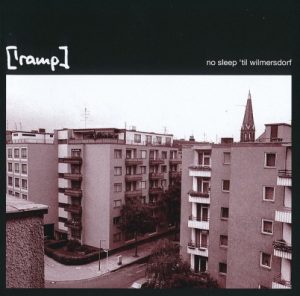
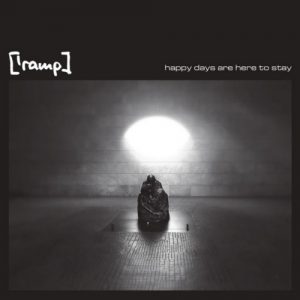 In fact, I even toyed with the idea of using it as the opening track for “wilmersdorf” rather than “compact phasing a” but I opted against it because the mood of the album would have been a totally different one then. I thought to myself “Cosmic Klaus might like this one, I should play it to him” but, having been in and out of touch with Klaus for quite some time, I never got around to presenting it to him. To be frank, I wasn’t all too keen on playing it to him as he had slagged off most of my work more often than once, so why should he have bothered to listen anyway?
In fact, I even toyed with the idea of using it as the opening track for “wilmersdorf” rather than “compact phasing a” but I opted against it because the mood of the album would have been a totally different one then. I thought to myself “Cosmic Klaus might like this one, I should play it to him” but, having been in and out of touch with Klaus for quite some time, I never got around to presenting it to him. To be frank, I wasn’t all too keen on playing it to him as he had slagged off most of my work more often than once, so why should he have bothered to listen anyway?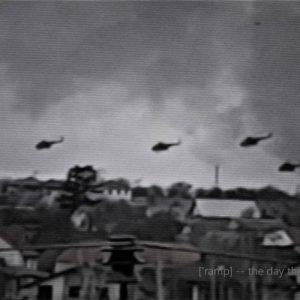 As they say in German, it takes a very long spoon if you want to have dinner with the devil, and obviously, spoons were pretty short (even shorter than sight). I would have thought mankind had learned a lesson or two from the past, but obviously, I must have been a tad too optimistic.
As they say in German, it takes a very long spoon if you want to have dinner with the devil, and obviously, spoons were pretty short (even shorter than sight). I would have thought mankind had learned a lesson or two from the past, but obviously, I must have been a tad too optimistic.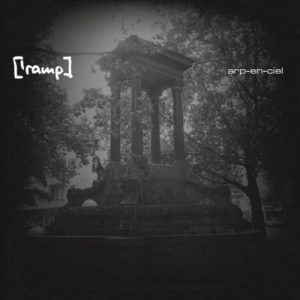 I might do next
I might do next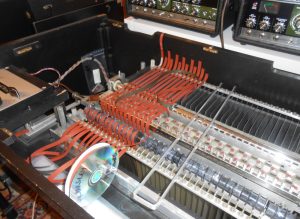
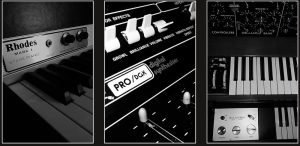
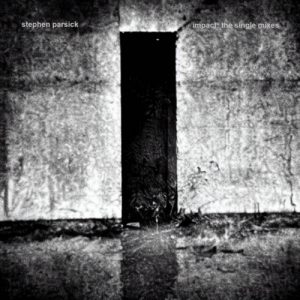
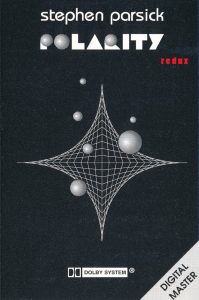 some twenty
some twenty 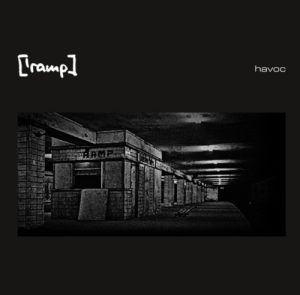 The majority of “Havoc” was recorded in parallel with “Happy Days are here to stay” and
The majority of “Havoc” was recorded in parallel with “Happy Days are here to stay” and